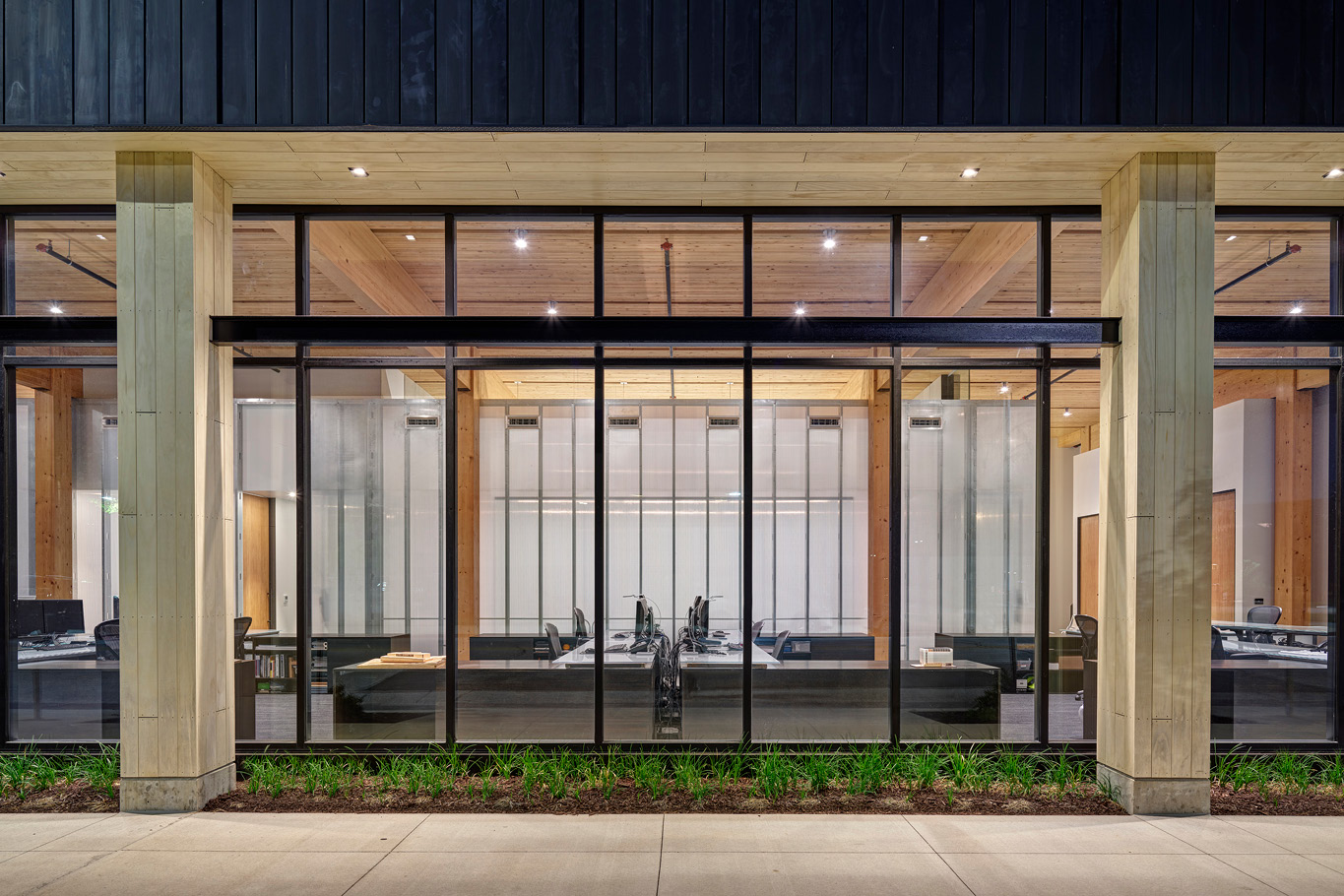According to the American Institute of Architects (AIA), the built environment accounts for 40% of greenhouse gas emissions, placing an immense responsibility on architects in the fight against climate change. However, with that responsibility comes the tremendous opportunity to create a positive, enduring impact on the planet.
At Neumann Monson, we believe our work has the power to drive positive change and have placed sustainability at the heart of our design process. To that end, we continuously pursue innovative, high-performance design solutions, committing ourselves to uplifting communities while working toward a carbon-neutral future.
Sustainable Design Philosophy
Sustainability has always been a core component of our design process. When Neumann Monson was founded in 1977, the Energy Crisis was at the forefront of many architects’ minds.
Throughout the 1980s and ‘90s, we incorporated strategies that later became Leadership in Energy and Environment Design (LEED) principles, and in 2006, we made a formal, firm-wide commitment to sustainability when all our architects became LEED Accredited Professionals. As of 2021, 25 of our architects maintain LEED Accreditations.
Since 2006, we have continued to deepen our commitment to sustainability, weaving it throughout the fabric of our company culture. We have adopted AIA’s 2030 Commitment to achieve 100% net-zero energy buildings by 2030 and contribute building performance data to AIA’s Design Data Exchange, which helps expedite the industry’s efforts toward a carbon-neutral future. At the same time, we deploy our in-house Green Team on every project to aid energy modeling and sustainability strategies that are specific to each client.
Our sustainable design philosophy transcends energy consumption. For each project, we adopt a framework that encourages us to think about the health and well-being of individuals and their communities.
Our designs are built for longevity and are adaptable to future forces, particularly the changing climate. Through a thoughtful, data-driven approach, we create buildings that have a positive environmental impact and can be enjoyed for generations.
Sustainability by Numbers
By partnering with like-minded clients, we have put our commitment to sustainability into action. Our experience includes 24 LEED Certified projects, two of which have achieved Platinum status, the highest LEED ranking.
One of our Platinum status projects, Market One in Des Moines, earned an AIA COTE Top Ten Award in 2021, the industry’s highest award for sustainable design excellence.
Our design for the Unitarian Universalist facility in Coralville, Iowa is Net Positive, meaning it produces more energy than it uses. We plan to continue these efforts in Muscatine, Iowa where the Stanley Center for Peace & Security is on track to become the state’s first fully certified Living Building. By meeting the standards outlined by the International Living Future Institute, the Stanley Center will be completely self-sufficient and create a positive impact on the local environment.
To date, Neumann Monson has designed over 2.5 million square feet of sustainable projects—places where people live, work, learn, and worship. Our progress is only achieved in partnership with our forward-thinking clients, and we are thrilled to be driving positive change together.
Leaving an Enduring Impact
Architecture’s responsibility to improve the planet’s health pushes us to continuously improve the work we do and the way we do it. Every act of architecture has the power to create an enduring impact, and it is this idea that drives our team to innovate sustainable design solutions.
We are hopeful for the future and know that through sustainable design excellence, we can leave the world a better place.
